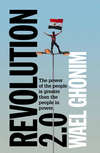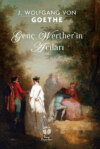Kitabı oku: «Maxims and Reflections», sayfa 5
VI
306
The secret places in the way of life may not and cannot be revealed: there are rocks of offence on which every traveller must stumble. But the poet points to where they are.
307
It would not be worth while to see seventy years if all the wisdom of this world were foolishness with God.
308
The true is Godlike: we do not see it itself; we must guess at it through its manifestations.
309
The real scholar learns how to evolve the unknown from the known, and draws near the master.
310
In the smithy the iron is softened by blowing up the fire, and taking the dross from the bar. As soon as it is purified, it is beaten and pressed, and becomes firm again by the addition of fresh water. The same thing happens to a man at the hands of his teacher.
311
What belongs to a man, he cannot get rid of, even though he throws it away.
312
Of true religions there are only two: one of them recognises and worships the Holy that without form or shape dwells in and around us; and the other recognises and worships it in its fairest form. Everything that lies between these two is idolatry.
313
It is undeniable that in the Reformation the human mind tried to free itself; and the renaissance of Greek and Roman antiquity brought about the wish and longing for a freer, more seemly, and elegant life. The movement was favoured in no small degree by the fact that men's hearts aimed at returning to a certain simple state of nature, while the imagination sought to concentrate itself.
314
The Saints were all at once driven from heaven; and senses, thought, and heart were turned from a divine mother with a tender child, to the grown man doing good and suffering evil, who was later transfigured into a being half-divine in its nature, and then recognised and honoured as God himself. He stood against a background where the Creator had opened out the universe; a spiritual influence went out from him; his sufferings were adopted as an example, and his transfiguration was the pledge of everlastingness.
315
As a coal is revived by incense, so prayer revives the hopes of the heart.
316
From a strict point of view we must have a reformation of ourselves every day, and protest against others, even though it be in no religious sense.
317
It should be our earnest endeavour to use words coinciding as closely as possible with what we feel, see, think, experience, imagine, and reason. It is an endeavour which we cannot evade, and which is daily to be renewed.
Let every man examine himself, and he will find this a much harder task than he might suppose; for, unhappily, a man usually takes words as mere make-shifts; his knowledge and his thought are in most cases better than his method of expression.
False, irrelevant, and futile ideas may arise in ourselves and others, or find their way into us from without. Let us persist in the effort to remove them as far as we can, by plain and honest purpose.
318
As we grow older, the ordeals grow greater.
319
Where I cannot be moral, my power is gone.
320
A man is not deceived by others, he deceives himself.
321
Laws are all made by old people and by men. Youths and women want the exceptions, old people the rules.
322
It is not the intelligent man who rules, but intelligence; not the wise man, but wisdom.
323
To praise a man is to put oneself on his level.
324
It is not enough to know, we must also apply; it is not enough to will, we must also do.
325
Chinese, Indian, and Egyptian antiquities are never more than curiosities; it is well to make acquaintance with them; but in point of moral and æsthetic culture they can help us little.
326
The German runs no greater danger than to advance with and by the example of his neighbours. There is perhaps no nation that is fitter for the process of self-development; so that it has proved of the greatest advantage to Germany to have obtained the notice of the world so late.
327
Even men of insight do not see that they try to explain things which lie at the foundation of our experience, and in which we must simply acquiesce.
Yet still the attempt may have its advantage, as otherwise we should break off our researches too soon.
328
From this time forward, if a man does not apply himself to some art or handiwork, he will be in a bad way. In the rapid changes of the world, knowledge is no longer a furtherance; by the time a man has taken note of everything, he has lost himself.
329
Besides, in these days the world forces universal culture upon us, and so we need not trouble ourselves further about it; we must appropriate some particular culture.
330
The greatest difficulties lie where we do not look for them.
331
Our interest in public events is mostly the merest philistinism.
332
Nothing is more highly to be prized than the value of each day.
333
Pereant qui ante nos nostra dixerunt! This is so strange an utterance, that it could only have come from one who fancied himself autochthonous. The man who looks upon it as an honour to be descended from wise ancestors, will allow them at least as much common-sense as he allows himself.
334
Strictly speaking, everything depends upon a man's intentions; where these exist, thoughts appear; and as the intentions are, so are the thoughts.
335
If a man lives long in a high position, he does not, it is true, experience all that a man can experience; but he experiences things like them, and perhaps some things that have no parallel elsewhere.
VII
336
The first and last thing that is required of genius is love of truth.
337
To be and remain true to oneself and others, is to possess the noblest attribute of the greatest talents.
338
Great talents are the best means of conciliation.
339
The action of genius is in a way ubiquitous: towards general truths before experience, and towards particular truths after it.
340
An active scepticism is one which constantly aims at overcoming itself, and arriving by means of regulated experience at a kind of conditioned certainty.
341
The general nature of the sceptical mind is its tendency to inquire whether any particular predicate really attaches to any particular object; and the purpose of the inquiry is safely to apply in practice what has thus been discovered and proved.
342
The mind endowed with active powers and keeping with a practical object to the task that lies nearest, is the worthiest there is on earth.
343
Perfection is the measure of heaven, and the wish to be perfect the measure of man.
344
Not only what is born with him, but also what he acquires, makes the man.
345
A man is well equipped for all the real necessities of life if he trusts his senses, and so cultivates them that they remain worthy of being trusted.
346
The senses do not deceive; it is the judgment that deceives.
347
The lower animal is taught by its organs; man teaches his organs, and dominates them.
348
All direct invitation to live up to ideals is of doubtful value, particularly if addressed to women. Whatever the reason of it may be, a man of any importance collects round him a seraglio of a more or less religious, moral, and æsthetic character.
349
When a great idea enters the world as a Gospel, it becomes an offence to the multitude, which stagnates in pedantry; and to those who have much learning but little depth, it is folly.
350
Every idea appears at first as a strange visitor, and when it begins to be realised, it is hardly distinguishable from phantasy and phantastery.
351
This it is that has been called, in a good and in a bad sense, ideology; and this is why the ideologist is so repugnant to the hard-working, practical man of every day.
352
You may recognise the utility of an idea, and yet not quite understand how to make a perfect use of it.
353
Credo Deum! That is a fine, a worthy thing to say; but to recognise God where and as he reveals himself, is the only true bliss on earth.
354
Kepler said: 'My wish is that I may perceive the God whom I find everywhere in the external world, in like manner also within and inside me.' The good man was not aware that in that very moment the divine in him stood in the closest connection with the divine in the Universe.
355
What is predestination? It is this: God is mightier and wiser than we are, and so he does with us as he pleases.
356
Toleration should, strictly speaking, be only a passing mood; it ought to lead to acknowledgment and appreciation. To tolerate a person is to affront him.
357
Faith, Love, and Hope once felt, in a quiet sociable hour, a plastic impulse in their nature; they worked together and created a lovely image, a Pandora in the higher sense, Patience.
358
'I stumbled over the roots of the tree which I planted.' It must have been an old forester who said that.
359
A leaf blown by the wind often looks like a bird.
360
Does the sparrow know how the stork feels?
361
Lamps make oil-spots, and candles want snuffing; it is only the light of heaven that shines pure and leaves no stain.
362
If you miss the first button-hole, you will not succeed in buttoning up your coat.
363
A burnt child dreads the fire; an old man who has often been singed is afraid of warming himself.
364
It is not worth while to do anything for the world that we have with us, as the existing order may in a moment pass away. It is for the past and the future that we must work: for the past, to acknowledge its merits; for the future, to try to increase its value.
365
Let every man ask himself with which of his faculties he can and will somehow influence his age.
366
Let no one think that people have waited for him as for the Saviour.
367
Character in matters great and small consists in a man steadily pursuing the things of which he feels himself capable.
368
The man who wants to be active and has to be so, need only think of what is fitting at the moment, and he will make his way without difficulty. This is where women have the advantage, if they understand it.
369
The moment is a kind of public; a man must deceive it into believing that he is doing something; then it leaves us alone to go our way in secret; whereat its grandchildren cannot fail to be astonished.
370
There are men who put their knowledge in the place of insight.
371
In some states, as a consequence of the violent movements experienced in almost all directions, there has come about a certain overpressure in the system of education, the harm of which will be more generally felt hereafter; though even now it is perfectly well recognised by capable and honest authorities. Capable men live in a sort of despair over the fact that they are bound by the rules of their office to teach and communicate things which they look upon as useless and hurtful.
372
There is no sadder sight than the direct striving after the unconditioned in this thoroughly conditioned world.
373
Before the Revolution it was all effort; afterwards it all changed to demand.
374
Can a nation become ripe? That is a strange question. I would answer, Yes! if all the men could be born thirty years of age. But as youth will always be too forward and old age too backward, the really mature man is always hemmed in between them, and has to resort to strange devices to make his way through.
375
It does not look well for monarchs to speak through the press, for power should act and not talk. The projects of the liberal party always bear being read: the man who is overpowered may at least express his views in speech, because he cannot act. When Mazarin was shown some satirical songs on a new tax, 'Let them sing,' said he, 'as long as they pay.'
376
Vanity is a desire of personal glory, the wish to be appreciated, honoured, and run after, not because of one's personal qualities, merits, and achievements, but because of one's individual existence. At best, therefore, it is a frivolous beauty whom it befits.
377
The most important matters of feeling as of reason, of experience as of reflection, should be treated of only by word of mouth. The spoken word at once dies if it is not kept alive by some other word following on it and suited to the hearer. Observe what happens in social converse. If the word is not dead when it reaches the hearer, he murders it at once by a contradiction, a stipulation, a condition, a digression, an interruption, and all the thousand tricks of conversation. With the written word the case is still worse. No one cares to read anything to which he is not already to some extent accustomed: he demands the known and the familiar under an altered form. Still the written word has this advantage, that it lasts and can await the time when it is allowed to take effect.
378
Both what is reasonable and what is unreasonable have to undergo the like contradiction.
379
Dialectic is the culture of the spirit of contradiction, which is given to man that he may learn to perceive the differences between things.
380
With those who are really of like disposition with himself a man cannot long be at variance; he will always come to an agreement again. With those who are really of adverse disposition, he may in vain try to preserve harmony; he will always come to a separation again.
381
Opponents fancy they refute us when they repeat their own opinion and pay no attention to ours.
382
People who contradict and dispute should now and then remember that not every mode of speech is intelligible to every one.
383
Every man hears only what he understands.
384
I am quite prepared to find that many a reader will disagree with me; but when he has a thing before him in black and white, he must let it stand. Another reader may perhaps take up the very same copy and agree with me.
385
The truest liberality is appreciation.
386
For the strenuous man the difficulty is to recognise the merits of elder contemporaries and not let himself be hindered by their defects.
387
Some men think about the defects of their friends, and there is nothing to be gained by it. I have always paid attention to the merits of my enemies, and found it an advantage.
388
There are many men who fancy they understand whatever they experience.
389
The public must be treated like women: they must be told absolutely nothing but what they like to hear.
390
Every age of man has a certain philosophy answering to it. The child comes out as a realist: he finds himself as convinced that pears and apples exist as that he himself exists. The youth in a storm of inner passion is forced to turn his gaze within, and feel in advance what he is going to be: he is changed into an idealist. But the man has every reason to become a sceptic: he does well to doubt whether the means he has chosen to his end are the right ones. Before and during action he has every reason for keeping his understanding mobile, that he may not afterwards have to grieve over a false choice. Yet when he grows old he will always confess himself a mystic: he sees that so much seems to depend on chance; that folly succeeds and wisdom fails; that good and evil fortune are brought unexpectedly to the same level; so it is and so it has been, and old age acquiesces in that which is and was and will be.
391
When a man grows old he must consciously remain at a certain stage.
392
It does not become an old man to run after the fashion, either in thought or in dress. But he must know where he is, and what the others are aiming at.
What is called fashion is the tradition of the moment. All tradition carries with it a certain necessity for people to put themselves on a level with it.
393
We have long been busy with the critique of reason. I should like to see a critique of common-sense. It would be a real benefit to mankind if we could convincingly prove to the ordinary intelligence how far it can go; and that is just as much as it fully requires for life on this earth.
394
The thinker makes a great mistake when he asks after cause and effect: they both together make up the indivisible phenomenon.
395
All practical men try to bring the world under their hands; all thinkers, under their heads. How far each succeeds, they may both see for themselves.
396
Shall we say that a man thinks only when he cannot think out that of which he is thinking?
397
What is invention or discovery? It is the conclusion of what we were looking for.
398
It is with history as with nature and with everything of any depth, it may be past, present, or future: the further we seriously pursue it, the more difficult are the problems that appear. The man who is not afraid of them, but attacks them bravely, has a feeling of higher culture and greater ease the further he progresses.
399
Every phenomenon is within our reach if we treat it as an inclined plane, which is of easy ascent, though the thick end of the wedge may be steep and inaccessible.
400
If a man would enter upon some course of knowledge, he must either be deceived or deceive himself, unless external necessity irresistibly determines him. Who would become a physician if, at one and the same time, he saw before him all the horrible sights that await him?
401
How many years must a man do nothing before he can at all know what is to be done and how to do it!
402
Duty: where a man loves what he commands himself to do.
LITERATURE AND ART
403
When Madame Roland was on the scaffold, she asked for pen and paper, to note the peculiar thoughts that hovered about her on the last journey. It is a pity they were refused, for in a tranquil mind thoughts rise up at the close of life hitherto unthinkable; like blessed inward voices, alighting in glory on the summits of the past.
404
Literature is a fragment of fragments: the least of what happened and was spoken, has been written; and of the things that have been written, very few have been preserved.
405
And yet, with all the fragmentary nature of literature, we find thousand fold repetition; which shows how limited is man's mind and destiny.
406
Excellent work is unfathomable, approach it as you will.
407
It is not language in itself which is correct or forcible or elegant, but the mind that is embodied in it; and so it is not for a man to determine whether he will give his calculations or speeches or poems the desired qualities: the question is whether Nature has given him the intellectual and moral qualities which fit him for the work, – the intellectual power of observation and insight, the moral power of repelling the evil spirits that might hinder him from paying respect to truth.
408
The appeal to posterity springs from the pure, strong feeling of the existence of something imperishable; something that, even though it be not at once recognised, will in the end be gratified by finding the minority turn into a majority.
409
When a new literature succeeds, it obscures the effect of an earlier one, and its own effect predominates; so that it is well, from time to time, to look back. What is original in us is best preserved and quickened if we do not lose sight of those who have gone before us.
410
The most original authors of modern times are so, not because they produce what is new, but only because they are able to say things the like of which seem never to have been said before.
411
Thus the best sign of originality lies in taking up a subject and then developing it so fully as to make every one confess that he would hardly have found so much in it.
412
There are many thoughts that come only from general culture, like buds from green branches. When roses bloom, you see them blooming everywhere.
413
Lucidity is a due distribution of light and shade.' Hamann.
414
A man who has no acquaintance with foreign languages knows nothing of his own.
415
We must remember that there are many men who, without being productive, are anxious to say something important, and the results are most curious.
416
Deep and earnest thinkers are in a difficult position with regard to the public.
417
Some books seem to have been written, not to teach us anything, but to let us know that the author has known something.
418
An author can show no greater respect for his public than by never bringing it what it expects, but what he himself thinks right and proper in that stage of his own and others' culture in which for the time he finds himself.
419
The so-called Nature-poets are men of active talent, with a fresh stimulus and reaction from an over-cultured, stagnant, mannered epoch of art. They cannot avoid commonplace.
420
Productions are now possible which, without being bad, have no value. They have no value, because they contain nothing; and they are not bad, because a general form of good-workmanship is present to the author's mind.
421
All lyrical work must, as a whole, be perfectly intelligible, but in some particulars a little unintelligible.
422
A romance is a subjective epic in which the author begs leave to treat the world after his own ideas. The only question is, whether he has any ideas; the rest will follow of itself.
423
Subjective or so-called sentimental poetry has now been admitted to an equality with objective and descriptive. This was inevitable; because otherwise the whole of modern poetry would have to be discarded. It is now obvious that when men of truly poetical genius appear, they will describe more of the particular feelings of the inner life than of the general facts of the great life of the world. This has already taken place to such a degree that we have a poetry without figures of speech, which can by no means be refused all praise.
424
Superstition is the poetry of life, and so it does not hurt the poet to be superstitious.
425
That glorious hymn, Veni Creator Spiritus, is really an appeal to genius. That is why it speaks so powerfully to men of intellect and power.
426
Translators are like busy match-makers: they sing the praises of some half-veiled beauty, and extol her charms, and arouse an irresistible longing for the original.
427
A Spinoza in poetry becomes a Machiavelli in philosophy.
428
Against the three unities there is nothing to be said, if the subject is very simple; but there are times when thrice three unities, skilfully interwoven, produce a very pleasant effect.
429
The sentimentality of the English is humorous and tender; of the French, popular and pathetic; of the Germans, naïve and realistic.
430
Mysticism is the scholastic of the heart, the dialectic of the feelings.
431
If a man sets out to reproach an author with obscurity, he should first of all examine his own mind, to see if he is himself all clearness within. Twilight makes even plain writing illegible.
432
It is with books as with new acquaintances. At first we are highly delighted, if we find a general agreement, – if we are pleasantly moved on any of the chief sides of our existence. With a closer acquaintance differences come to light; and then reasonable conduct mainly consists in not shrinking back at once, as may happen in youth, but in keeping firm hold of the things in which we agree, and being quite clear about the things in which we differ, without on that account desiring any union.
433
In psychological reflection the greatest difficulty is this: that inner and outer must always be viewed in parallel lines, or, rather, interwoven. It is a continual systole and diastole, an inspiration and an expiration of the living soul. If this cannot be put into words, it should be carefully marked and noted.
434
My relations with Schiller rested on the decided tendency of both of us towards a single aim, and our common activity rested on the diversity of the means by which we endeavoured to attain that aim.
435
Once when a slight difference was mentioned between us, of which I was reminded by a passage in a letter of his, I made the following reflections: There is a great difference between a poet seeking the particular for the universal, and seeing the universal in the particular. The one gives rise to Allegory, where the particular serves only as instance or example of the general; but the other is the true nature of Poetry, namely, the expression of the particular without any thought of, or reference to, the general. If a man grasps the particular vividly, he also grasps the general, without being aware of it at the time; or he may make the discovery long afterwards.
436
There may be eclectic philosophers, but not an eclectic philosophy.
437
But every one is an eclectic who, out of the things that surround and take place about him, appropriates what is suited to his nature; and this is what is meant by culture and progress, in matters of theory or practice.
438
Various maxims of the ancients, which we are wont to repeat again and again, had a meaning quite different from that which is apt to attach to them in later times.
439
The saying that no one who is unacquainted with or a stranger to geometry should enter the philosopher's school, does not mean that a man must become a mathematician to attain the wisdom of the world.
440
Geometry is here taken in its primary elements, such as are contained in Euclid and laid before every beginner; and then it is the most perfect propædeutic and introduction to philosophy.
441
When a boy begins to understand that an invisible point must always come before a visible one, and that the shortest way between two points is a straight line, before he can draw it on his paper with a pencil, he experiences a certain pride and pleasure. And he is not wrong; for he has the source of all thought opened to him; idea and reality, potentia et actu, are become clear; the philosopher has no new discovery to bring him; as a mathematician, he has found the basis of all thought for himself.
442
And if we turn to that significant utterance, Know thyself, we must not explain it in an ascetic sense. It is in nowise the self-knowledge of our modern hypochondrists, humorists, and self-tormentors. It simply means: pay some attention to yourself; take note of yourself; so that you may know how you come to stand towards those like you and towards the world. This involves no psychological torture; every capable man knows and feels what it means. It is a piece of good advice which every one will find of the greatest advantage in practice.
443
Let us remember how great the ancients were; and especially how the Socratic school holds up to us the source and standard of all life and action, and bids us not indulge in empty speculation, but live and do.
444
So long as our scholastic education takes us back to antiquity and furthers the study of the Greek and Latin languages, we may congratulate ourselves that these studies, so necessary for the higher culture, will never disappear.
445
If we set our gaze on antiquity and earnestly study it, in the desire to form ourselves thereon, we get the feeling as if it were only then that we really became men.
446
The pedagogue, in trying to write and speak Latin, has a higher and grander idea of himself than would be permissible in ordinary life.
447
In the presence of antiquity, the mind that is susceptible to poetry and art feels itself placed in the most pleasing ideal state of nature; and even to this day the Homeric hymns have the power of freeing us, at any rate, for moments, from the frightful burden which the tradition of several thousand years has rolled upon us.
448
There is no such thing as patriotic art and patriotic science. Both art and science belong, like all things great and good, to the whole world, and can be furthered only by a free and general interchange of ideas among contemporaries, with continual reference to the heritage of the past as it is known to us.
449
Poetical talent is given to peasant as well as to knight; all that is required is that each shall grasp his position and treat it worthily.
450
An historic sense means a sense so cultured that, in valuing the deserts and merits of its own time, it takes account also of the past.
451
The best that history gives us is the enthusiasm it arouses.
452
The historian's duty is twofold: first towards himself, then towards his readers. As regards himself, he must carefully examine into the things that could have happened; and, for the reader's sake, he must determine what actually did happen. His action towards himself is a matter between himself and his colleagues; but the public must not see into the secret that there is little in history which can be said to be positively determined.
453
The historian's duty is to separate the true from the false, the certain from the uncertain, and the doubtful from that which cannot be accepted.
454
It is seldom that any one of great age becomes historical to himself, and finds his contemporaries become historical to him, so that he neither cares nor is able to argue with any one.
455
On a closer examination of the matter, it will be found that the historian does not easily grasp history as something historical. In whatever age he may live, the historian always writes as though he himself had been present at the time of which he treats, instead of simply narrating the facts and movements of that time. Even the mere chronicler only points more or less to his own limitations, or the peculiarities of his town or monastery or age.
456
We really learn only from those books which we cannot criticise. The author of a book which we could criticise would have to learn from us.
457
That is the reason why the Bible will never lose its power; because, as long as the world lasts, no one can stand up and say: I grasp it as a whole and understand all the parts of it. But we say humbly: as a whole it is worthy of respect, and in all its parts it is applicable.
458
There is and will be much discussion as to the use and harm of circulating the Bible. One thing is clear to me: mischief will result, as heretofore, by using it phantastically as a system of dogma; benefit, as heretofore, by a loving acceptance of its teachings.
459
I am convinced that the Bible will always be more beautiful the more it is understood; the more, that is, we see and observe that every word which we take in a general sense and apply specially to ourselves, had, under certain circumstances of time and place, a peculiar, special, and directly individual reference.
460
The incurable evil of religious controversy is that while one party wants to connect the highest interest of humanity with fables and phrases, the other tries to rest it on things that satisfy no one.




















